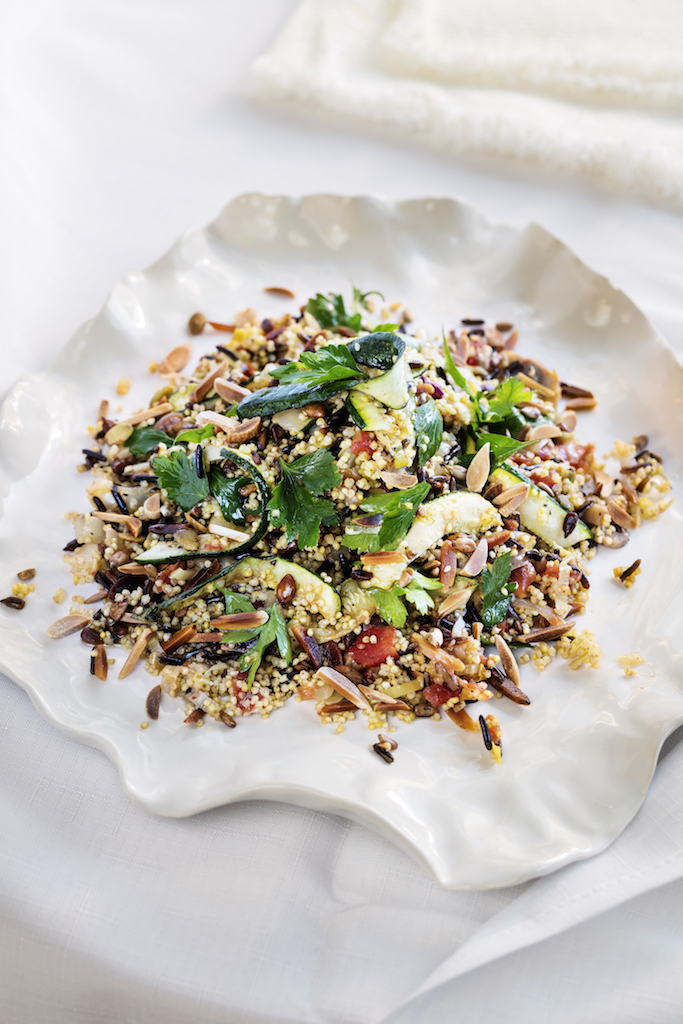February is Heart Research Month, which aims to raise awareness about the negative impacts of heart disease and the importance of supporting heart research. Very fittingly, this Thursday 14th February is Wear Red Day – a day which aims to raise awareness and funding for heart disease.
If you would like to join in and make sure the dietary and lifestyle choices you are making are supportive of heart health, here are a few simple swaps for heart health to get you started.
Swap meat for fatty fish at least 2 x per week
Meat including red meat and chicken mostly contains saturated fats and are typically low in healthy monounsaturated and polyunsaturated fats. Alternatively, fatty fish such as salmon, sardines and mackerel contain a good dose of heart healthy unsaturated fats, especially omega-3. Omega 3 fats are particularly good for heart health as they are linked to a reduced cardiovascular disease risk due to their ability to reduce triglycerides, improve blood vessel elasticity and reduce the potential for blood clots and inflammation. If you don’t eat fish, alternative sources of unsaturated fats are chia seeds, hemp seeds, walnuts and flax/linseeds.
Swap bottled sauces and dressings for herbs and spices
Bottled sauces and dressings are often loaded with poor quality fats, sugars, sodium and artificial colours, preservatives and flavourings, all of which don’t support heart health. Thankfully its incredibly easy to create the same great taste, yet in a heart friendly way. The trick is using herbs and spices such as turmeric, cumin, coriander, rosemary, cinnamon, paprika, sumac and ginger. The reason herbs and spices are so good for our hearts is because they contain a source of antioxidants and anti-inflammatory compounds, which help to reduce fats in the blood after eating meals containing fat – this is why they make a great marinade for meat and in curries. Herbs and spices also contain very few kilojoules, sugar and poor quality fats themselves, but at the same time, are nutritious.
Swap refined grains for wholegrains
This is a bit of a no brainer for many but is worth mentioning when it comes to heart health. Wholegrains are generally higher in fibre because they are less processed then refined grains. The higher fibre content can help to lower blood pressure, cholesterol and help us to maintain a healthy weight. We need at least 25-30g fibre per day, so in additional to wholegrains, other healthy foods which can help bump up our fibre intake include chia seeds, hemp seeds, linseeds, green peas, legumes, fruit and vegetables. Make sure each meal you consume has a few sources of fibre!
Swap 10min of screen time for a 10min meditation or deep breathing
We are all guilty of being glued to our screens and it’s not uncommon to look up 30min later and wonder where the time went. Excess screen time cannot only be bad for our eye health but depending on what we look at, it can also impact our mood and stress levels. Instead of constantly scrolling without purpose or any real benefit, allocate 10min of this time to doing a meditation or deep breathing practice. After all, it has been suggested that meditation can play a role in reducing risk of heart disease by improving heart function and changing our outlook on life, which in turn motivates us to make healthier choices.
Swap processed snacks for a handful of nuts
At 3pm many of us reach around for a salty or sweet pick me up snack, something that is quick and satisfying. A heart healthy snack which is both quick and satisfying and often overlooked, is nuts! Nuts are a great source of plant-based protein, healthy fats, fibre, antioxidants, vitamins and minerals. Research has shown that eating 20g of nuts daily can cut peoples risk of coronary heart disease by nearly 30%. Walnuts have one of the highest antioxidant content of all nuts and are a particularly good choice when it comes to heart health. Pair with some fresh fruit for an added hit of fibre, antioxidants, vitamins and minerals.
